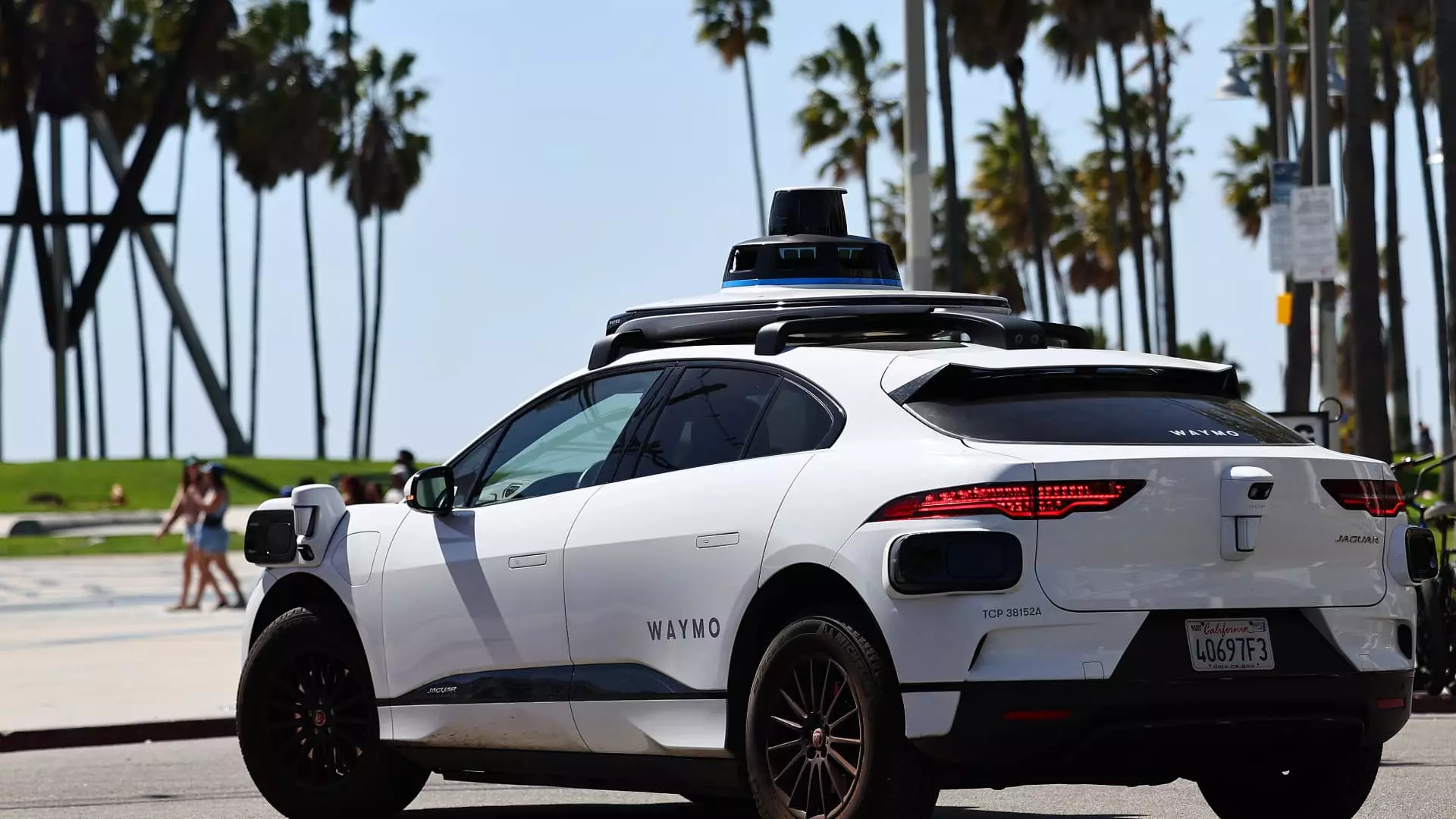Waymo, the autonomous vehicle arm of Alphabet, has recently concluded a robust $5.6 billion funding round aimed at amplifying its robotaxi services. With operations currently concentrated in major U.S. cities such as Los Angeles, San Francisco, and Phoenix, this capital infusion is poised to facilitate expansion efforts, not just locally but in new regions such as Austin and Atlanta through a freshly forged alliance with ride-sharing giant Uber. This substantial investment underscores the company’s ambitious vision to dominate the future of mobility, setting a precedent in autonomous transportation.
This funding round was led by Alphabet itself, accompanied by prominent investors including Andreessen Horowitz, Fidelity, Perry Creek, Silver Lake, Tiger Global, and T. Rowe Price. The significance of these financial endorsements cannot be overstated; they reflect a growing confidence in not just Waymo, but the broader potential of autonomous vehicles (AVs) in revolutionizing transportation. Co-CEOs Tekedra Mawakana and Dmitri Dolgov emphasized that the newfound capital would not only fuel the expansion of their ride-hailing services but also enhance the development of Waymo’s proprietary “Driver” technology for various commercial applications.
Despite the proliferating interest in the realm of AVs, Waymo stands out as a pioneer, being the first to successfully operate a commercial robotaxi service across several major metro areas. While many competitors are still in the preliminary phases of testing or are developing their technologies, Waymo’s operational robotaxi service has gained traction, especially among demographics who are particularly cautious about safety, such as women opting for ride-hailing over rides with human drivers. This segment of users even includes parents relying on the service to safely transport their teenagers to school, illustrating the breadth of use cases for autonomous ride-hailing.
Currently, Waymo boasts over 100,000 weekly trips across its serviced cities, which users can easily access via the Waymo One app. The partnership with Uber to introduce services in Austin represents a strategic move to reinforce their presence in competitive landscapes, especially considering Austin’s reputation in tech advancement. While rivals like Tesla’s Elon Musk have made lofty promises regarding driverless ride-hailing, Waymo’s established presence provides it with a unique advantage as the industry navigates toward broader acceptance and operational efficacy.
Waymo’s closest competitor in the U.S., GM-owned Cruise, recently faced setbacks after a high-profile incident raised consumer safety concerns. Unlike Waymo, which has seen its AVs perform more consistently, Cruise’s operations were paused following reports of an accident involving a pedestrian. Such incidents create turbulent waters for AV companies, as regulatory scrutiny increases and the imperative for safety becomes paramount. Indeed, in a Pew Research Center survey, nearly two-thirds of U.S. respondents expressed reluctance to utilize driverless vehicles, emphasizing the psychological barrier that companies must overcome to achieve widespread adoption.
Although Waymo touts a record of fewer accidents compared to human drivers, the company is not free from turmoil. Its vehicles have on occasion contributed to road obstructions and misdirected navigation practices, prompting the need for software recalls aimed at improving safety. Ongoing scrutiny about the incident involving Cruise underscores the necessity of demonstrating superior safety and reliability compared to human-operated taxis.
Waymo’s latest robotaxi model, derived from the Geely Zeekr platform, showcases advancements in both hardware and AI software. The recent partnership with Hyundai, which includes integrating the Ioniq 5 electric vehicle into its fleet, highlights a commitment to evolving its technology. Furthermore, the company’s plans to conduct trials in harsher environments, including winter conditions, signal a readiness to tackle diverse operational challenges and convert them into opportunities for expansion both domestically and globally.
Waymo’s newly secured capital influx provides a significant boost to its autonomous transportation initiatives. The ongoing competition and the evolving landscape of the autonomous vehicle market will undoubtedly pose challenges, but Waymo appears well-positioned to address them head-on. With its focus on safety, strategic partnerships, and technological innovation, the company is not just paving the way for itself, but also laying the groundwork for the future of transportation at large. As the company prepares to venture beyond its existing markets, it will undoubtedly play a crucial role in shaping the next chapter of mobility.

